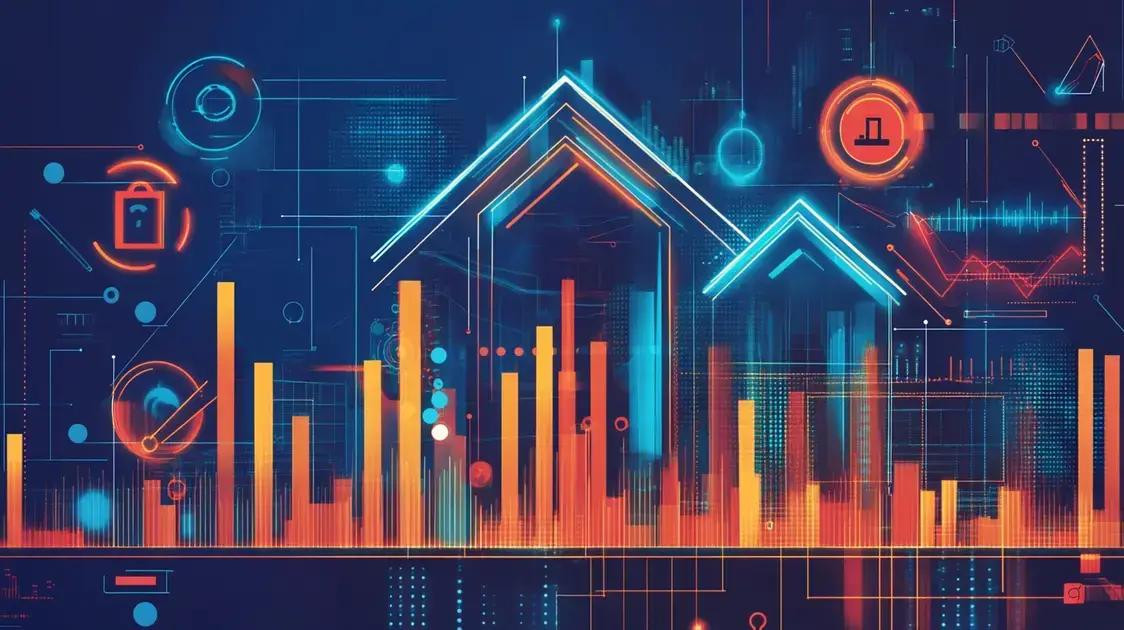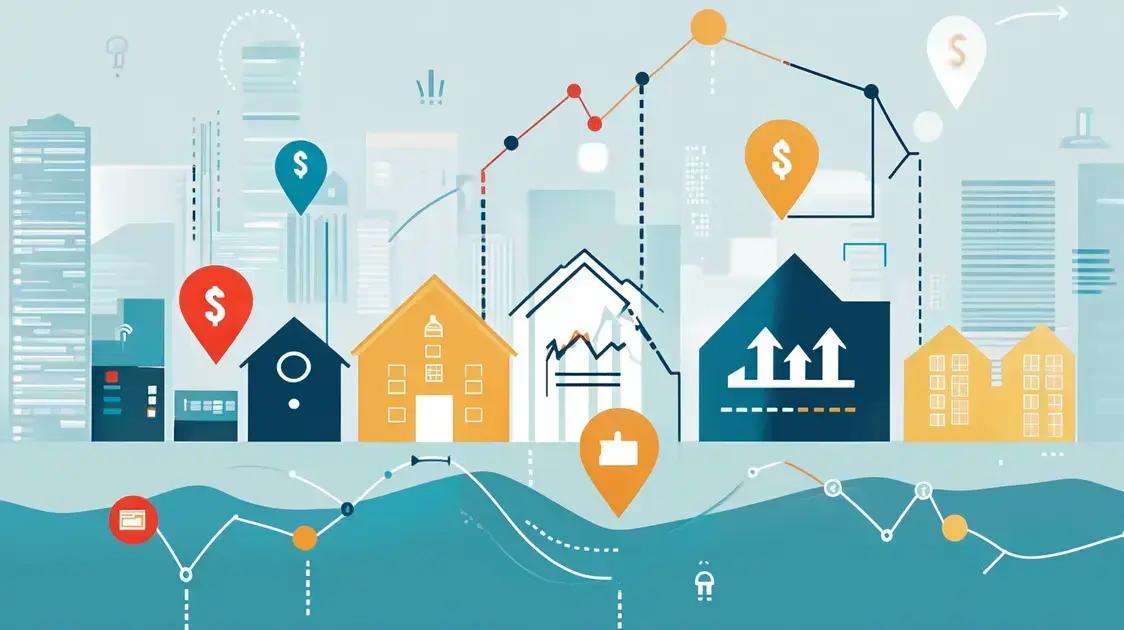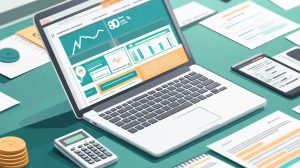Mortgage rates 2025 are anticipated to play a crucial role in the housing market landscape as we approach the new year.
Understanding the variations affected by economic factors can help both buyers and homeowners strategize effectively.
As we dive deeper, we will analyze potential forecasts and trends that could reshape the future of your mortgage choices.
Understanding Mortgage Rates in 2025
Understanding mortgage rates in 2025 will be key for homebuyers. These rates can change based on the economy, government policies, and demand for housing.
As we look ahead, many experts believe rates will slowly rise, but not as sharply as in previous years. Keeping an eye on these changes can help buyers make informed decisions.
As inflation affects the economy, it can directly impact mortgage rates. Typically, when inflation is high, rates tend to increase as well. On the other hand, if the economy slows down, rates might drop to encourage borrowing. This makes it vital for homebuyers in 2025 to stay updated on financial news and trends affecting rates.
Homebuyers should also consider their personal finance situations while watching for rate changes. Getting pre-approved for a mortgage can provide insight into the rates available based on a buyer’s credit score and financial standing.
Understanding mortgage rates in 2025 means being prepared and flexible, ensuring you get the best deal possible when purchasing a home.
Factors Influencing Mortgage Rates
Many factors influencing mortgage rates play a role in how much homebuyers pay for loans. One main factor is the economy. When the economy is strong, rates often go up because more people want to buy homes.
In contrast, if the economy is weak, rates may fall to help boost sales. Understanding these economic trends is essential for homebuyers in 2025.
Another important factor is the action of the Federal Reserve. This government body sets interest rates that influence how much banks charge for loans. If the Fed raises rates, mortgage rates usually follow. Homebuyers should pay attention to the Fed’s decisions, as they can signal upcoming changes in mortgage costs.
Lastly, your personal financial situation can also affect your mortgage rate. Factors like your credit score and down payment amount play a crucial role in the rates you can receive. A higher credit score often leads to lower rates. As such, homebuyers looking at mortgage rates in 2025 should work on improving their credit and saving for a larger down payment to secure better terms.
Predictions for Mortgage Rates in 2025

Many experts have predictions for mortgage rates in 2025 that homebuyers should consider. Most forecasts suggest that rates might gradually increase as the economy improves. With more people wanting to buy homes, demand can push rates higher. This means that waiting too long could lead to higher mortgage costs for potential buyers.
Another prediction revolves around inflation and its impact on rates. If inflation continues to rise, the Federal Reserve may respond by increasing interest rates. This, in turn, could cause mortgage rates to spike. Homebuyers in 2025 need to be aware of inflation trends and how they might affect their borrowing expenses.
Some analysts believe that while rates may rise, they will not soar as dramatically as in previous years. This trend offers a bit of comfort for buyers, suggesting that even with changes, rates may still be manageable. Staying informed about these predictions for mortgage rates is crucial for making well-timed home purchasing decisions in the coming year.
How to Prepare for Changing Mortgage Rates
To prepare for changing mortgage rates in 2025, start by keeping an eye on the market trends. Research current rates and economic news that may affect them.
Understanding the direction of rates can help you time your home purchase and financing decisions better. Regularly checking financial news can keep you informed about potential changes.
Another important step is to improve your credit score. A higher credit score often means better mortgage rates. Pay bills on time, reduce debt, and avoid new credit inquiries before applying for a mortgage.
By boosting your credit score, you can secure a more favorable interest rate, which can save you money in the long run.
Finally, consider getting pre-approved for a mortgage before you begin house hunting. This not only gives you a clear idea of how much you can afford but also locks in a rate for a set period.
With rates potentially rising, having a pre-approval can give you an advantage in the market, letting you act quickly when you find the right home and ensuring you are ready for changing mortgage rates.
Tips for Securing the Best Mortgage Rate
When looking for the best mortgage rate, one of the most important tips for securing the best mortgage rate is to shop around. Different lenders offer different rates, so it’s beneficial to compare several options.
Don’t settle for the first offer you receive. Request quotes from multiple banks and credit unions to find the most affordable option for your situation.
Another key tip is to improve your credit score before applying for a mortgage. A higher credit score can help you qualify for lower rates. Pay off outstanding debts, keep credit card balances low, and ensure you pay bills on time. Taking these steps can enhance your creditworthiness, making you a more attractive borrower to lenders.
Finally, consider making a larger down payment if possible. Putting more money down on your mortgage decreases the amount you need to borrow, which can lead to a better rate.
This option can also help you avoid private mortgage insurance (PMI), saving you money each month. By following these tips, you can position yourself for the best mortgage rates as you prepare for 2025.
Impacts of Economic Conditions on Mortgage Rates

The impacts of economic conditions on mortgage rates can be significant. When the economy is strong and people are confident about their finances, more individuals tend to buy homes. This increased demand can lead to higher mortgage rates because lenders see more opportunities for profit. As a result, homebuyers may face higher borrowing costs when the economy is booming.
On the other hand, during times of economic downturn or uncertainty, mortgage rates often decrease. The Federal Reserve may lower interest rates to encourage spending and borrowing. This means that homebuyers may benefit from lower mortgage rates when the economy struggles. Understanding these trends can help buyers make smart decisions about when to enter the market.
Inflation is another key factor that affects mortgage rates. When prices rise, the Federal Reserve may raise interest rates to control inflation. This often leads to higher mortgage rates, making it crucial for homebuyers to monitor inflation trends. By keeping an eye on the economy and understanding how these conditions affect mortgage rates, homebuyers can better navigate the housing market in 2025.
Understanding mortgage rates in 2025 is vital for homebuyers. One of the key factors is how the Federal Reserve sets interest rates. When the economy grows, the Fed may raise rates to help control inflation. As a result, mortgage rates may rise, making borrowing more expensive for homebuyers. Therefore, it’s important to stay informed about the Fed’s decisions as you plan your home purchase.
Another important aspect is the overall state of the economy. When more people have jobs and incomes increase, demand for homes typically goes up. This can lead to higher mortgage rates. On the flip side, if the economy slows down, the opposite can happen, with rates potentially decreasing. Understanding these economic trends can help homebuyers decide when to enter the market.
Lastly, it is essential to keep an eye on inflation. Rising prices mean that the cost of goods and services is increasing. If inflation continues to rise, the Fed might respond by increasing interest rates, which would, in turn, raise mortgage rates. Homebuyers should always monitor these economic indicators to make better decisions about their mortgages in 2025.





